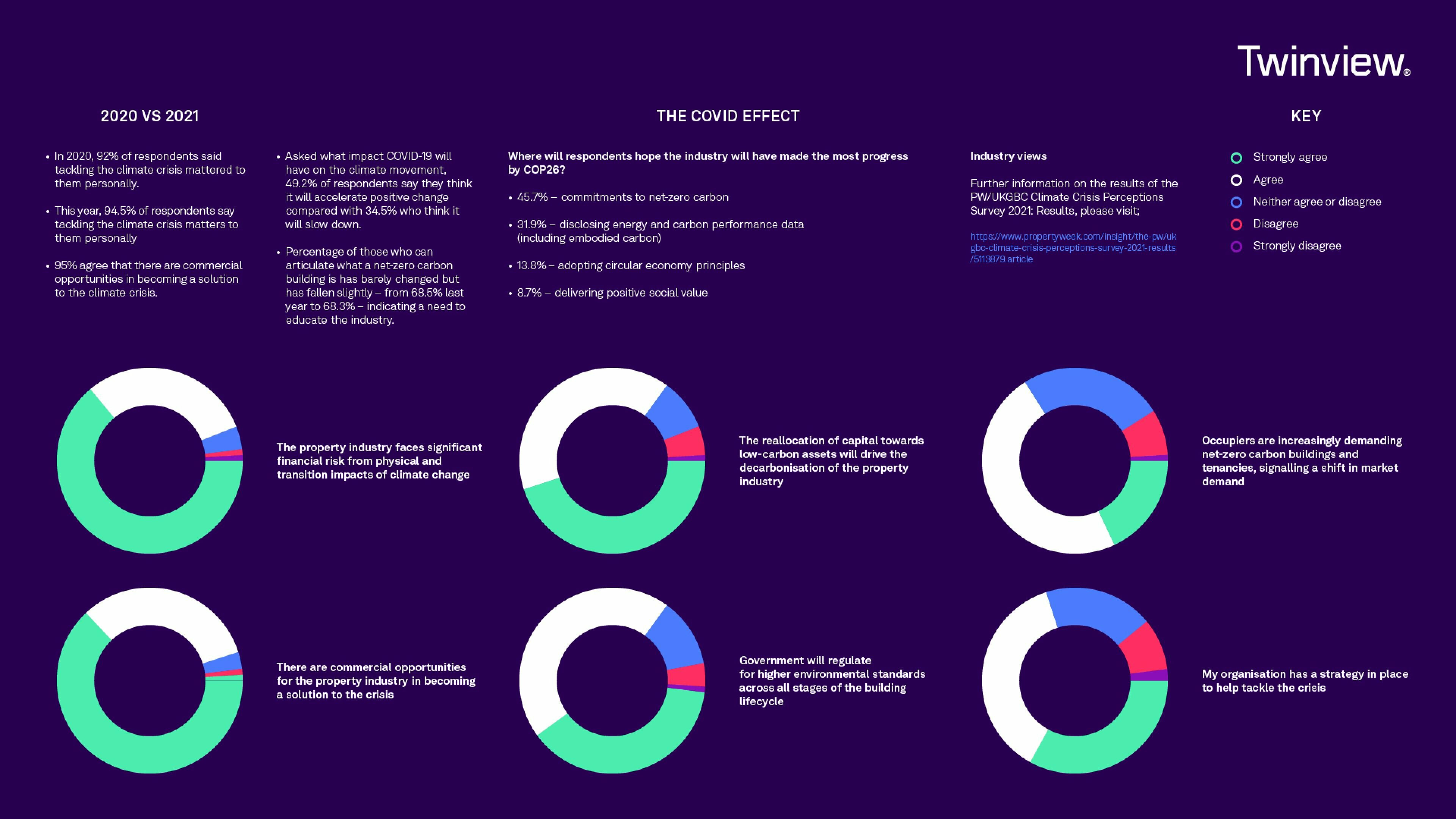25 May 2021 | Industry Insights
Climate Crisis Perceptions 2021

With COP26 on the horizon and recovery from the COVID-19 pandemic underway, we take a look at the results of the second Property Week/UKGBC Climate Crisis Perceptions Survey as they come at a vital time in relation to the climate crisis.
When respondents were asked if the climate crisis mattered to them personally, 92% agreed with the statement in 2020 which increased to 94.5% in 2021, signalling that climate change is having an effect on more people.
The percentage of those who are able to articulate what a net-zero building is has fallen by 0.2% to 68.3%. Although this is a step in the right direction, it is minimal and since buildings account for 39% of CO2 emissions globally, this indicates a need to educate the industry.
Respondents hope that the industry will have made the most progress on commitments to net-zero carbon by COP26. A clear winner with 45.7% of the vote, closely followed by disclosing energy and carbon performance data (including embodied carbon) at 31.9%. Other actions include adopting circular economy principles at 13.8% and delivering positive social value at just 8.7%.
Source: https://www.propertyweek.com/insight/the-pw/ukgbc-climate-crisis-perceptions-survey-2021-results/5113879.article
Related insights

Industry Insights
The Intelligent Hotel: Navigating Costs with Digital Twins
The hotel industry, a sector once synonymous with bustling lobbies and seamless service, has weathered numerous challenges over the past decade. From pandemic-induced shutdowns to the relentless squeeze of rising costs and staffing headaches, hotel survival has become a masterclass in adaptation. Room demand reached an all-time high in 2024, according to STR research. As travellers return in mass, expectations have shifted, demanding a level of personalised experience that feels both effortless and intuitive. How do hotels meet the challenge? Enter the digital twin—a virtual representation reflecting the hotel's every heartbeat.
Read more

Case Studies
Preserving the Past, Powering the Future: Twinview's Role at Archives New Zealand
The newly constructed Archives New Zealand facility in the heart of Wellington represents a strategic investment in the long-term stewardship of the nation's invaluable historical records. Designed to provide a secure and stable environment for the preservation of national archival collections, safeguarding heritage isn’t just about secure storage; it requires a smart, resilient, and efficient environment supported by cutting-edge facilities management. To meet this challenge, Archives New Zealand partnered with Twinview and WT New Zealand to embed intelligence into the building's fabric. The result? A future-ready, high-performance facility where smart data meets operational excellence.
Read more

Industry Insights
Understanding Renters' Rights: How Digital Twins Improve Compliance and Property Management
The recent introduction of the Renters' Rights Bill in the UK aims to improve the relationship between tenants and landlords. As part of a broader effort to ensure fairer and more transparent living conditions, this bill ensures that rental properties meet specific standards, including affordability, maintenance, and habitability. Landlords and property managers now face new challenges in complying with evolving regulations. We explore how Digital Twins could support with these new compliance requirements.
Read more

